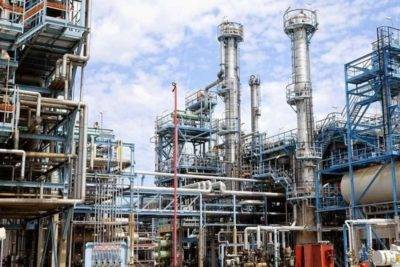PetroChina, a Chinese state-owned energy enterprise, finds itself entangled in payment complexities, resulting in a month-long delay in unloading a shipment of U.S. crude oil at the Dangote refinery in Nigeria. This delay, highlighted by reports from four trading sources and shipping data, underscores the hurdles confronting the $20 billion Dangote refinery, supported by Africa’s wealthiest individual, Aliko Dangote. The refinery aspires to emerge as the largest in Africa and Europe, yet faces operational setbacks as it endeavors to achieve peak production capacity, slated for either this year or the next.
Challenges for Dangote Refinery:
The standstill in unloading the shipment accentuates the challenges encountered by the Dangote refinery, which seeks to revolutionize Nigeria’s energy landscape. Aliko Dangote’s ambitious vision aims to pivot Nigeria away from its current reliance on crude oil exports, pivoting instead towards domestic refining to meet the nation’s fuel demands. However, this transition is beset by obstacles, including payment complications that hinder the timely procurement of crucial resources like crude oil. The delayed arrival of the two million barrels of West Texas Intermediate crude underscores the urgency for smoother operational processes and robust financial mechanisms to sustain the refinery’s ambitious goals.
PetroChina Non Shipment: Implications for Nigeria’s Energy Sector:
The protracted delay in unloading the PetroChina shipment not only impacts the Dangote refinery’s operations but also reverberates across Nigeria’s energy sector. Nigeria, endowed with abundant crude oil resources, has historically relied on exporting crude while importing refined petroleum products to satisfy domestic demand. The Dangote refinery represents a paradigm shift, aiming to reduce this dependency by fostering domestic refining capabilities.
However, persistent challenges such as payment complications risk impeding this transition, prolonging Nigeria’s vulnerability to fluctuations in global oil markets and hindering efforts to achieve energy self-sufficiency. As stakeholders navigate these obstacles, addressing payment complexities emerges as a critical imperative to realize the transformative potential of the Dangote refinery and usher in a new era of energy security for Nigeria.
Payment Complications Stall US Crude Oil Shipment at Dangote Refinery
The Dangote Refinery, a project aimed at revolutionizing Nigeria’s oil industry, finds itself embroiled in a challenging situation with PetroChina due to delays in unloading a shipment of U.S. crude oil. The delays stem from payment complications, highlighting potential obstacles in the refinery’s ambitious goals. Established to reduce Nigeria’s dependence on imported fuel, the Dangote Refinery is poised to become the largest in Africa and Europe, promising significant economic and industrial benefits for the region.
The recent setback underscores the complexities of international trade agreements and financial transactions. As Dangote Refinery endeavors to refine its own oil resources, the reliance on external suppliers becomes a critical aspect of its operations. The payment issues with PetroChina not only disrupt the supply chain but also raise concerns about the refinery’s financial stability and its ability to manage such intricacies effectively. Resolving these complications swiftly is imperative to prevent further disruptions and maintain momentum towards achieving the refinery’s objectives.
Dangote Refinery’s Vision and the Path to Self-Sufficiency
The Dangote Refinery represents a pivotal shift in Nigeria’s oil industry, aiming to reduce the country’s dependency on imported fuel by focusing on domestic refining capabilities. Led by Africa’s richest man, Aliko Dangote, the refinery symbolizes a significant investment in Nigeria’s economic future, promising to create thousands of jobs and bolstering the nation’s energy security. However, the recent challenges with PetroChina highlight the hurdles that accompany such ambitious endeavors.
Despite the setbacks, Dangote Refinery remains steadfast in its commitment to transforming Nigeria’s oil sector. The refinery’s vision extends beyond mere profitability, emphasizing the broader socio-economic impact of local refining capacities. By refining Nigerian crude oil domestically, the refinery aims to boost the nation’s revenue, reduce unemployment, and enhance technological capabilities in the energy sector. As negotiations continue to resolve the payment complications with PetroChina, stakeholders remain hopeful that these challenges will be overcome, allowing the refinery to realize its full potential and contribute significantly to Nigeria’s development agenda.
The situation between PetroChina and the Dangote Refinery underscores the intricate dynamics of the global oil market and the challenges associated with achieving self-sufficiency in refining capabilities. While obstacles may arise, the determination of stakeholders to address these issues and propel the refinery forward reflects a resilience that bodes well for Nigeria’s energy future
Table of Contents
Discover more from OGM News NG
Subscribe to get the latest posts sent to your email.














